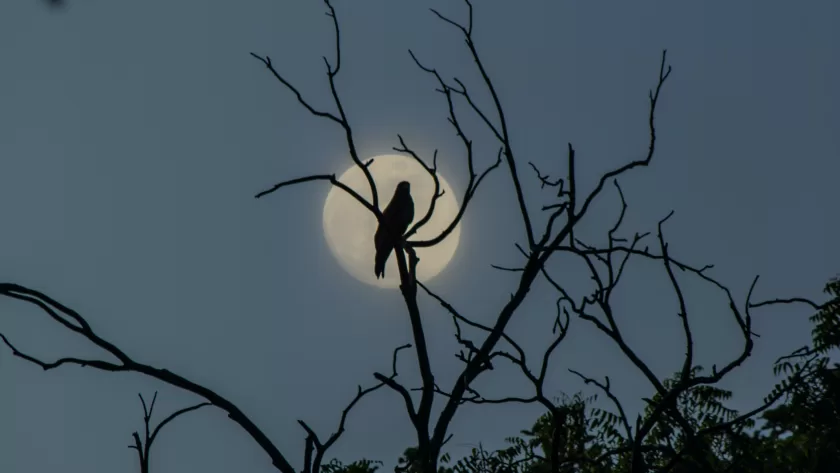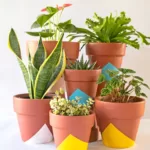Is It Ok To Water Plants At Night?
We’ve all heard people say that you should never water plants at night, but is it really true? Is there something special about the nighttime hours that puts our beloved greenery in danger? As any green thumb would know, this isn’t as straightforward a question as it seems! With so much conflicting advice out there on whether or not to water plants at night, it can be hard to figure out what’s right.
Let’s dive into the debate and see if we can get to the bottom of this conundrum once and for all. We’ll look at some reasons why watering your plants at night might be ok – even beneficial – plus explore how different types of plants may respond differently. Plus, I’ve got a few personal stories from my own gardening journey that will have you laughing along with me – trust me!
So join me as we take an entertaining look at ‘Is It OK To Water Plants At Night’? Who knows, by the end of this article you just might find yourself reaching for that watering can after dark with confidence.
Overview Of Plant Watering
When it comes to plant watering, there are a few things to keep in mind. First and foremost, the frequency of how often you water your plants depends on their individual needs as well as the type of soil they’re growing in. It’s important to check the moisture level in the soil before deciding whether or not you need to give them a drink – overwatering can be just as detrimental as underwatering! For those who don’t have green thumbs, using an automated watering system can help ensure that your plants get just the right amount of hydration. Additionally, there are lots of tips out there for creating a personalized watering schedule tailored specifically to each species of plant.
Overall, keeping track of when and how much you should water your plants is key. Being aware of what type of soil they’re living in and understanding their specific needs makes all the difference between healthy thriving houseplants or wilted flowers. Let’s dive into some benefits that come with watering at night so we can make sure our beloved greens stay happy and full-grown.
Benefits Of Watering At Night
Watering plants at night might seem counterintuitive, but it actually has a lot of benefits! First off, the cooler temperatures in the evening mean that less water will evaporate from the soil. This means that more moisture is available to your plants throughout the day – an especially useful benefit during hot summer months when plants need plenty of hydration. Additionally, watering your plants at night can help prevent diseases and pests like mildew and fungi which thrive in warm, moist conditions.
Another great advantage of night-time watering is that it reduces stress on both you and your plants. Since it’s generally quieter outside at night, there won’t be any distractions or loud noises while you’re tending to your garden. Plus, with fewer hours of daylight and heat exposure for most regions, this gives your plants time to rest without having to constantly battle against scorching sun rays all day long.
Before deciding if nighttime watering works best for you and your plants, there are a few important factors to consider…
Factors To Consider
When it comes to watering plants at night, there are a few factors you should consider. First and foremost, the type of plant is important. Different types of plants have different needs, so make sure that your specific plant will benefit from being watered at night. You’ll also want to think about light exposure. Many plants need plenty of sunlight during the day in order to thrive, so if they’re not getting enough then nighttime watering might be beneficial. Additionally, soil type matters too; certain soils can retain more water than others and this could affect how much you should water your plants each night. Finally, temperature range is something else to take into account when deciding whether or not to water your plants at night. Most plants prefer temperatures between 65-75 degrees Fahrenheit but check with yours specifically as some may require cooler temperatures for optimal growth.
Taking all these things into consideration will help ensure your plants get just the right amount of moisture at the right time of day! The next section looks further into which plant types are most affected by night watering – let’s dive in!
Plant Types Affected By Night Watering
It’s a perennial question – should you water plants at night? It’s not as clear-cut an answer as one might expect, and it largely depends on the types of plants in your garden. Let’s explore this further to see which plants can benefit from nighttime hydration and which ones are best left untouched until morning dew arrives.
Succulents and cacti tend to like arid conditions, so providing them with extra moisture late into the evening won’t do much good. Shade plants need plenty of water during the day, but if they get too wet overnight their foliage may suffer due to lack of air circulation. Perennial flowers should never be watered late at night since root rot is a real risk; however, annuals generally tolerate low amounts of nighttime watering quite well.
So whether you’re looking for some extra love for your succulent collection or want to give your potted petunias a boost before bedtime, make sure you think carefully about what type of plant will thrive in those conditions – otherwise you could end up with wilted leaves by sunup!
Risks Of Night Watering
Alright, so now that we’ve talked about the types of plants affected by night watering, it’s time to discuss the risks associated with this practice.
First off, you’re going to want to avoid any kind of plant-stress. Nighttime temperatures are usually cooler than daytime temps and if the temperature drops too low your plants could be harmed. Also watch out for night frosts which can cause damage as well. If you live in an area where these conditions are common during certain times of year, then nighttime watering is probably not a good idea.
Second, there’s also the risk of water intake being too high or too low when done at night. Too much water can lead to root rot because fungi love cooler temperatures and darker conditions – both of which occur at night more often than during the day. But on the other hand, if your plants don’t get enough water they won’t grow properly either! So make sure you pay close attention to how much moisture your plants are getting overnight.
Finally, one last thing you’ll need to consider is whether or not your soil type is suitable for nighttime watering. Some soils retain moisture better than others so it’s important that you know what type of soil your plants need before deciding whether or not it’s okay to water them at night. Knowing all this information will help ensure that your plants stay healthy and happy no matter when you decide to give them their daily dose of H2O! Now let’s move on and talk about best practices for night watering.
Best Practices For Night Watering
It’s totally ok to water your plants at night, but there are a few best practices you should follow. First of all, know the type of plant you have and whether or not it is nocturnal. Some plants prefer nighttime watering while others won’t benefit from this schedule. When in doubt, err on the side of caution and wait until morning when temperatures are warmer and the sun is out.
Next, pay attention to the amount of water you’re using for each plant. Overwatering can cause root rot which will eventually kill your beloved flora! If possible, use a sprinkler that has adjustable settings so you don’t waste too much H2O late at night. That way, you’ll also avoid any potential noise complaints from neighbors who may be sleeping during those hours.
Finally, make sure to stick with a regular watering schedule even if it means getting up early in the morning or staying up late at night. Plants need consistent hydration to flourish – that’s just how nature works! So take some time to understand what works best for your particular species before diving into a full-fledged night watering routine. With these tips in mind, let’s move onto exploring alternatives to night watering…
Alternatives To Night Watering
While watering plants at night can be ok in certain circumstances, there are other ways to keep your plants happy and healthy without risking water waste.
Here are some alternatives you may want to consider:
- Drip irrigation – Drip irrigation is an efficient way of delivering water directly to the root zone of the plant. This helps ensure that soil moisture levels remain consistent, while cutting down on water waste.
- Water conservation techniques – Mulching techniques such as adding a layer of pebbles or gravel around the base of your plant will help conserve water by preventing evaporation from the soil surface. Additionally, planting drought-tolerant species will reduce the amount of water needed for upkeep.
- Irrigation systems – If hand-watering isn’t feasible due to time constraints or lack of resources, installing an automated irrigation system could be helpful. Automated systems are customizable and allow you to control how much and when you’re watering your plants so it’s tailored specifically to their needs.
These methods have been proven effective in helping gardeners maintain healthy gardens with minimal effort and environmental impact!
Conclusion
Watering your plants at night can be beneficial, but it’s important to weigh the pros and cons when making this decision. As a gardener, you need to decide what is best for your specific situation – taking into account the type of plant you’re dealing with, the climate conditions in your area, and any other factors that might impact how much water your plants receive.
By considering all these elements before watering your plants at night, we can ensure our gardens are receiving optimal care. No matter what time of day or night we choose to tend to our gardens, by approaching gardening as an art form we can reap the rewards of cultivating something beautiful from nature.
The joy of nurturing life through gardening is one of my favorite things about being a green thumb- I hope you too will find satisfaction in caring for the living beings in your garden no matter what time the sun sets!




